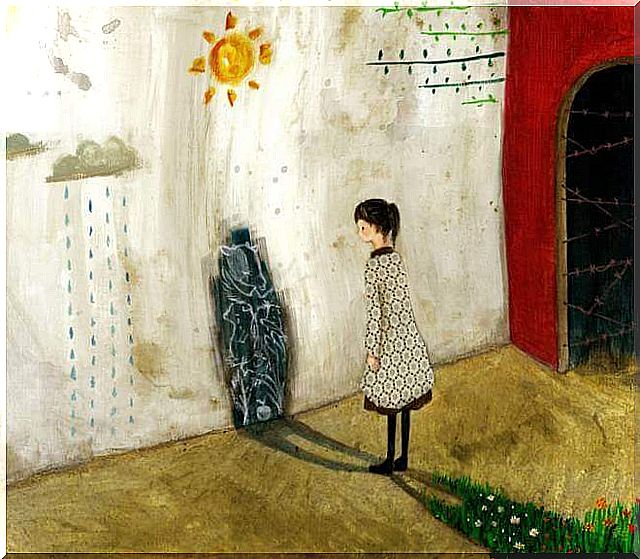How Can We Detect Negative People?

How can we detect negative people? How do we become aware of their behavior? Sometimes we fall into stereotypes and fallacies of attributing negative, inappropriate, and toxic behaviors to other people, ensuring that our own behavior is free of all negativity.
Obviously this is not true, although there are people who have negativity as a flag and don’t hesitate to share what they say and do, we are all susceptible to becoming negative people when we have a bad day.
That’s why we ask ourselves in this article… What makes people negative? It is necessary to be aware that these behaviors are more harmful depending on their frequency and intensity, and that negativity is not an absolute and always has a degree. But the fact is, it is up to you to avoid repeating these behaviors once you become aware of their nature.
speak ill of others
Out of insecurity, envy or simply because they need a topic of conversation. In a continuous and accentuated way, negative people do not stop analyzing the behavior of others from a destructive posture: they reveal intimacies, they judge others on scales that contemplate only two poles (bad/good, crazy/sane, useless/ brilliant) and never address these issues to provide solutions, but only to highlight why.

The main difference between negativity and falsehood versus facing personal conflict is that in the first case you poison your environment about certain people when you’ve never acted sincerely towards them. If you have no interest in them, go your way without destroying them.
Settling into unstimulating routines
There are many people who dream of a job that gives them stability and comfort, but these two qualities of a job can create rigidity if kept for an unlimited period of time: lack of empathy, communication, banal conversations, and quick, stereotyped social judgments.
This same comfort is extrapolated to personal relationships: you can have a certain stability in your relationships forever, but that does not imply that you will enrich them. People trapped in perennial self-indulgence end up being insensitive to the everyday lives of others. Let’s not abuse the banal concept of “comfort zone”, but let us be aware that quality of life is not synonymous with conformism.
Seek opinion and not information
When a person seeks only opinions that confirm his position without even considering the other side of reality, he ends up being consumed in his reductionist version of the world and its functioning.
Establishing extremism is not just a feature of insecurity or a lack of defined identity: it is also the prelude to a rampant negativity, which censors everything that is not convenient for it. It is the basic working mechanism of repressive people with a lack of individual and collective conscience in favor of the environment in which they live… It is self-determination through the moral, social or economic annulment of other people.
Isolating yourself or having a lack of meaningful social relationships
The human being is a social being, and when he tries to protect himself from the rest of the world, he takes off his own protective blanket. Just because some social relationships have not generated positive aspects does not mean that you have to get rid of your entire social network: you can meet people in new contexts, maintaining relationships that remain significant.
The key to social well-being lies in anchoring and adjusting : anchoring meaningful relationships and adjusting your trajectory to new social circles related to your values and goals. Harmony is always a source of happiness.

Manifest an excess of ego
Excessive ego has several clear consequences: lack of self-criticism, rigidity in intimate relationships, and seeking recognition before improving one’s abilities.
The obvious result is negativity based on self-ignorance and suspicion about the behavior of others if it is not valued as sufficient reinforcement. For many people, this is not a reason for negativity, as they disproportionately value the work they do and expect an external appreciation that matches their own.
Look for excuses when being among family and friends
No one disputes that we all live unfavorable circumstances in childhood, but we must take responsibility for our actions and take the opportunity to correct some behavior that we classify as wrong.
Focus on aspects that cannot be changed
Negative people tend to persist with goals that are unattainable according to their situation and discard more realistic and accessible goals that, implicitly, can serve as a bridge to reach greater goals.
This often shows the need to justify themselves through the impossibility of reaching very difficult goals, which validates their situation in the eyes of others and safeguards their self-concept.

overwork
Overworking does not indicate a greater capacity or sense of responsibility: it often highlights the inability to filter out the challenges we set ourselves or to organize our time. Something that not only affects the professional sphere, but also the free time, thus generating negative people.
Thus, a person who has little free time, who has a day full of obligatory activities that he doesn’t like, will be a person prone to carry negativity. That’s why it ‘s so important to have our agenda structured, so that our schedule leaves us room to breathe and regain strength.









